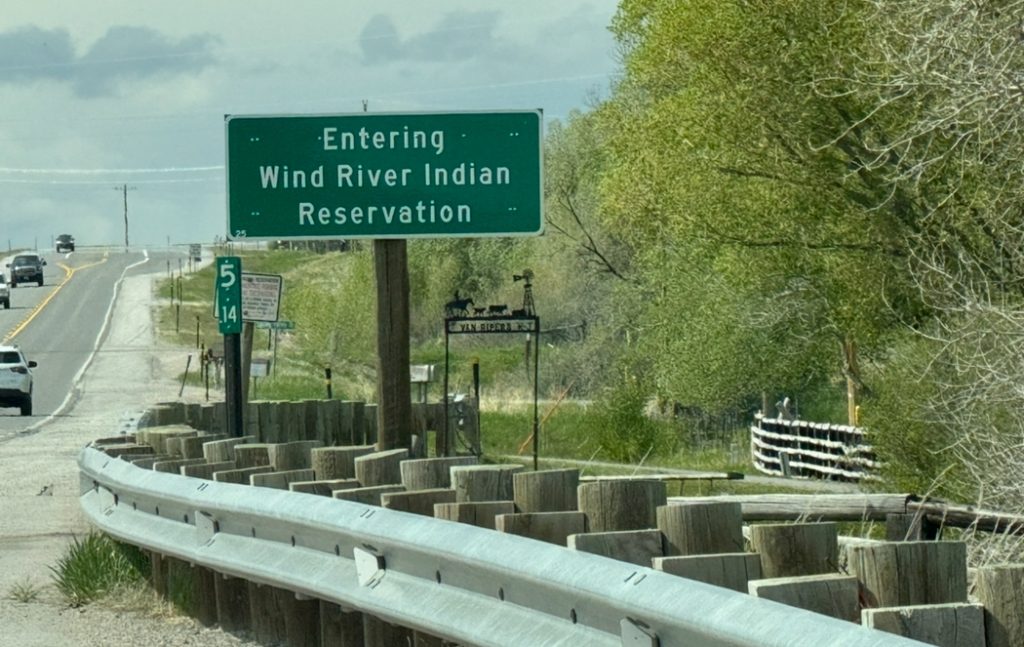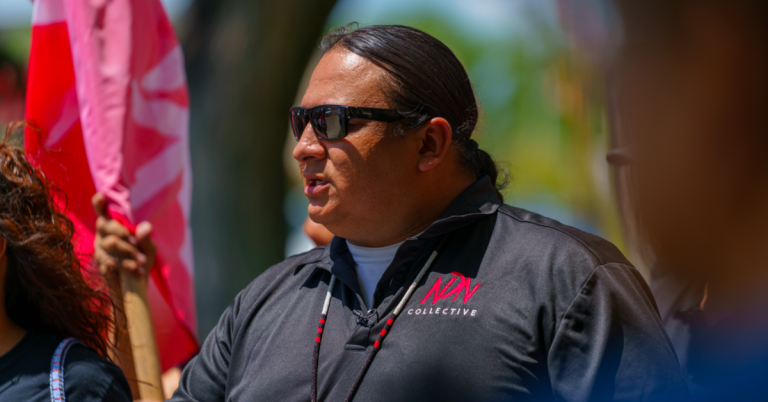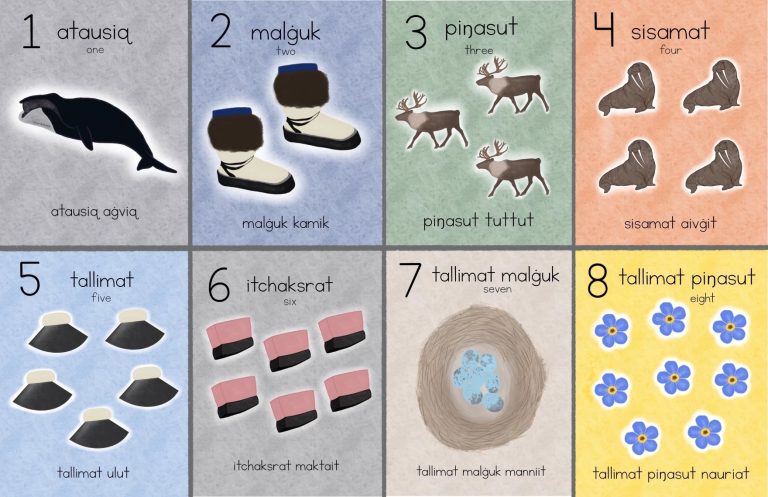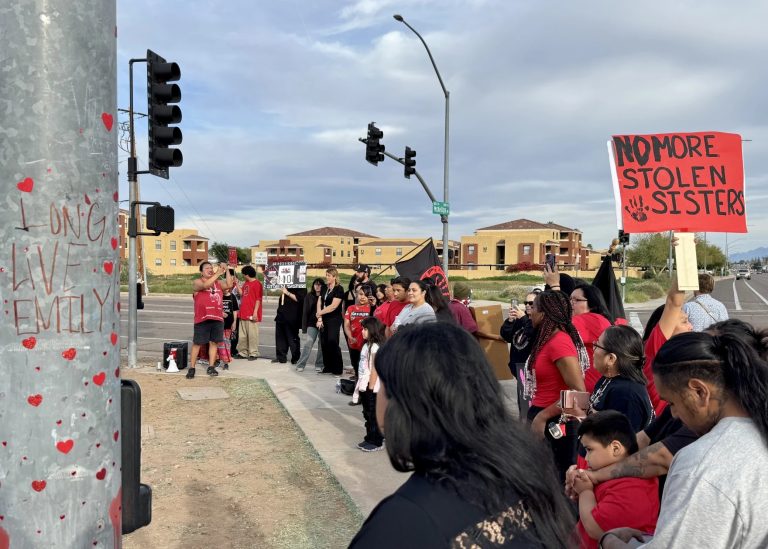Podcast: Play in new window | Download | Embed
Today, we’re featuring the Northern Arapaho Reentry Agency as part of our ongoing Native American Justice Series.
The reentry program is helping people return home from out of state federal prisons and state incarceration to the Wind River Reservation in Wyoming.
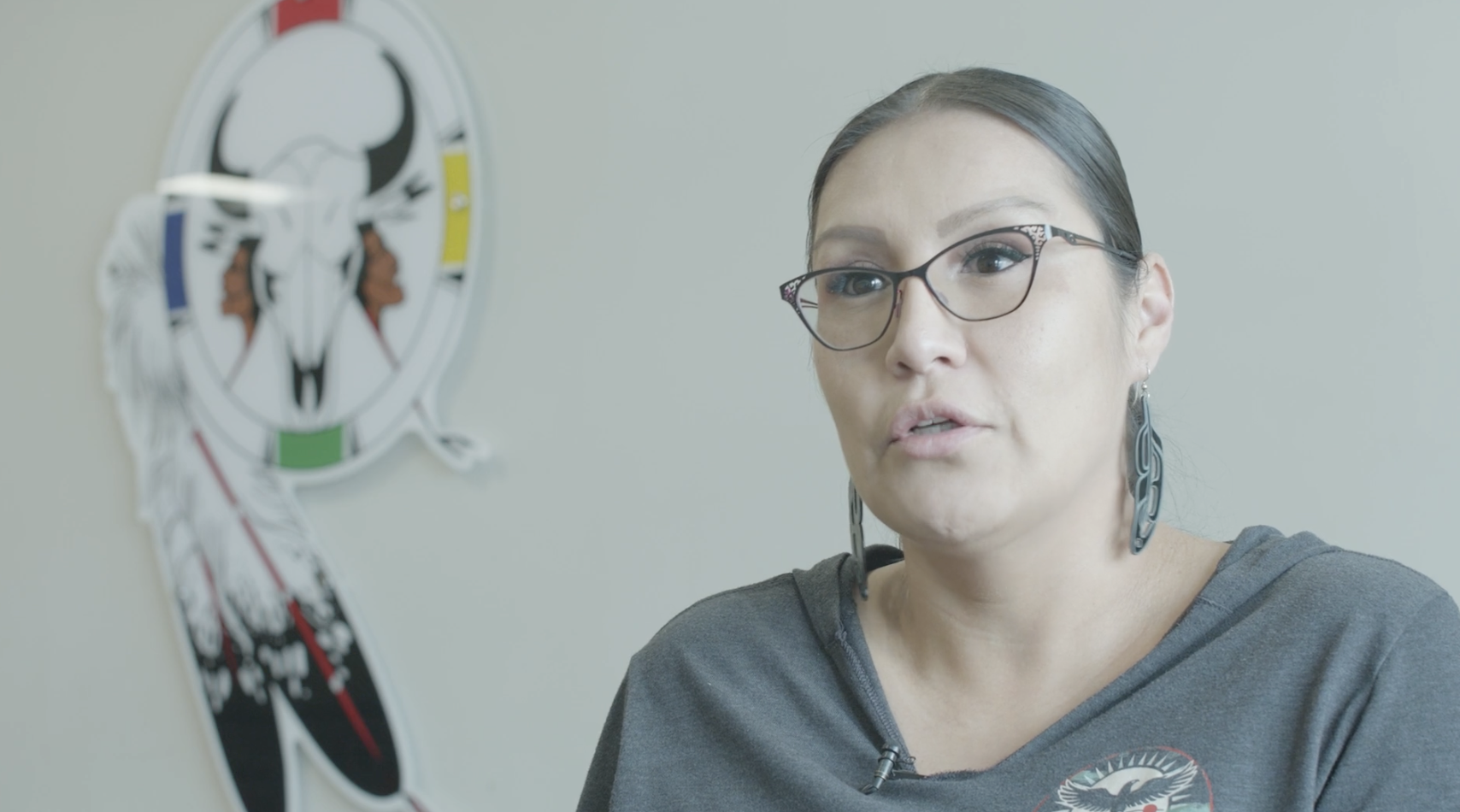 Terri Smith moves around boxes in her office filled with blankets and other supplies. She’s the program’s administrator.
Terri Smith moves around boxes in her office filled with blankets and other supplies. She’s the program’s administrator.
Smith is a former Northern Arapaho tribal attorney and judge who went through a public downfall after being indicted on drug charges in 2019.
“I was dealing with like a lot of grief and loss that I had no idea how to cope with. And so, I became addicted to opiates.”
Due to the pandemic, Smith was out on bond, but eventually went to federal prison serving six month, and six months on an ankle monitor. Smith says helping clients in the reentry program is a dream job.
“Just kind of being gone through the process myself, you know, being charged, being in treatment, being on probation, I feel like I connect on a deeper level with all my clients and I know what it’s like to be in their shoes and having a strong support.”
Smith works with people before they even get out of prison for a smooth transition – she helps look for housing, transportation, jobs, and benefits.
This day, Smith’s driving clients around to appointments, including checking on GED classes.
“A lot of people when they come home, they don’t have housing to go to, either all their family members passed away when they were gone or they’re coming home to a family that’s still in dysfunction that are still drinking and drugging and they don’t have a safe, sober place to go to. So, one of the biggest things I do is help them set up with sober living. And then transportation, everyone needs, the reservation is so spread out, you know, and so, giving them access to transportation to go apply for programs is a huge support for them.”

Clients Leah Little Fawn White Plume and Anthony Big Medicine say Smith and the reentry program have been a lifeline.
“Some of the challenges that I faced was like trying to get a job. I didn’t have any like clothes or shoes when I first got out because what I had was the clothes on my back and that was it,” said White Plume.
“She’s transported me to and from, took me to my probation meetings. She helped me get my driver’s license, something I never thought I’d actually do. She helped me get clothes because when I first got out of prison, I didn’t have any clothes. She helped me get some clothes. She’s always there when I need it,” said Big Medicine.
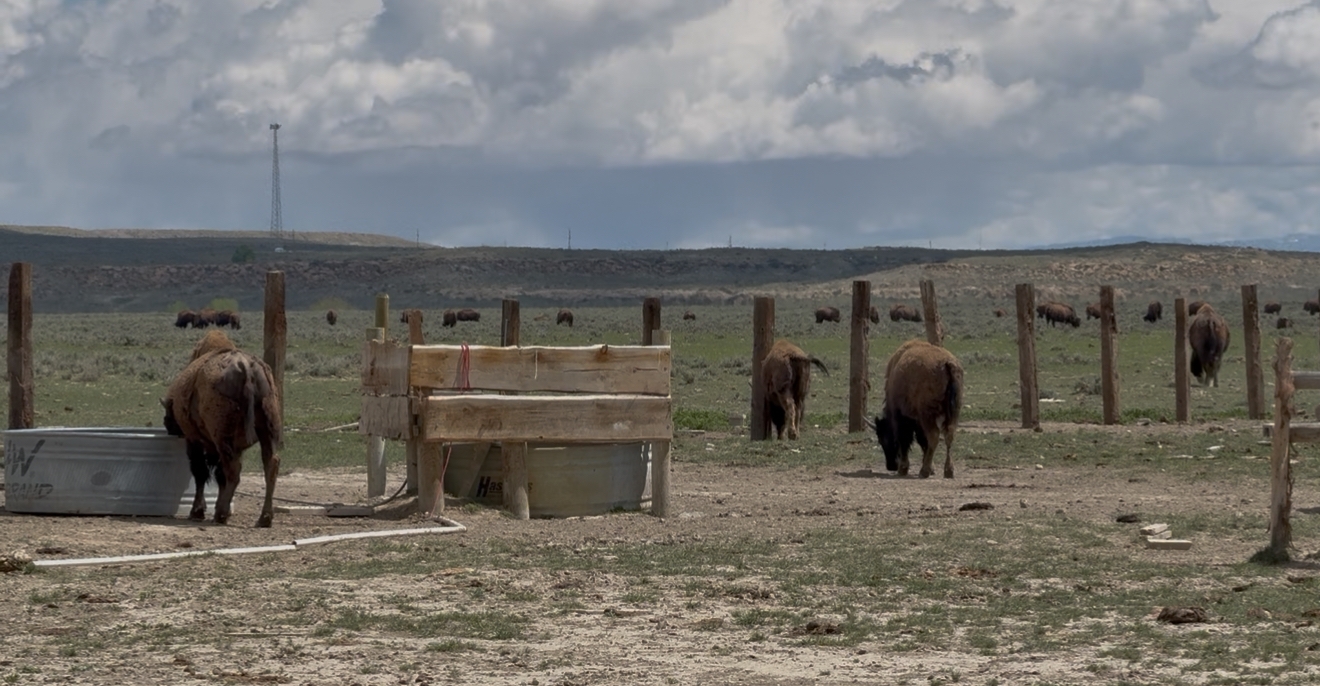
The program’s voluntary and open to tribal citizens enrolled in one of the two tribes of the Wind River Reservation – the Northern Arapaho and Eastern Shoshone. It’s also open to tribal descendant who are not enrolled in either tribe, and other Native American tribal members.
Many in the program say they have faced ups and downs, but are more determined now to stay out of the justice system with the program’s assistance like clients Thunder Little Thunder and Dolan Niedo.
“I’m more confident than I used to be. I know that I could do this with the help of Terry. Terry’s program is amazing. What she does is inspiring. I love her support, how she advocates for us and helps us with the right resources and gets us going on our feet. Now I got the chance to start here in my hometown with her program her support,” said Little Thunder.
“When I was getting out of prison, I kind of thought, dang, I’m a felon now. I thought everything was going to be that much harder. And she’s shown me programs that are pretty much specifically for felons like this program. I think for somebody that’s actually getting out of prison and trying to get back on their feet and trying to do the right thing and not just go back into the criminal mentality that they were in I feel that this program is very helpful. It helped me out a lot,” said Niedo.
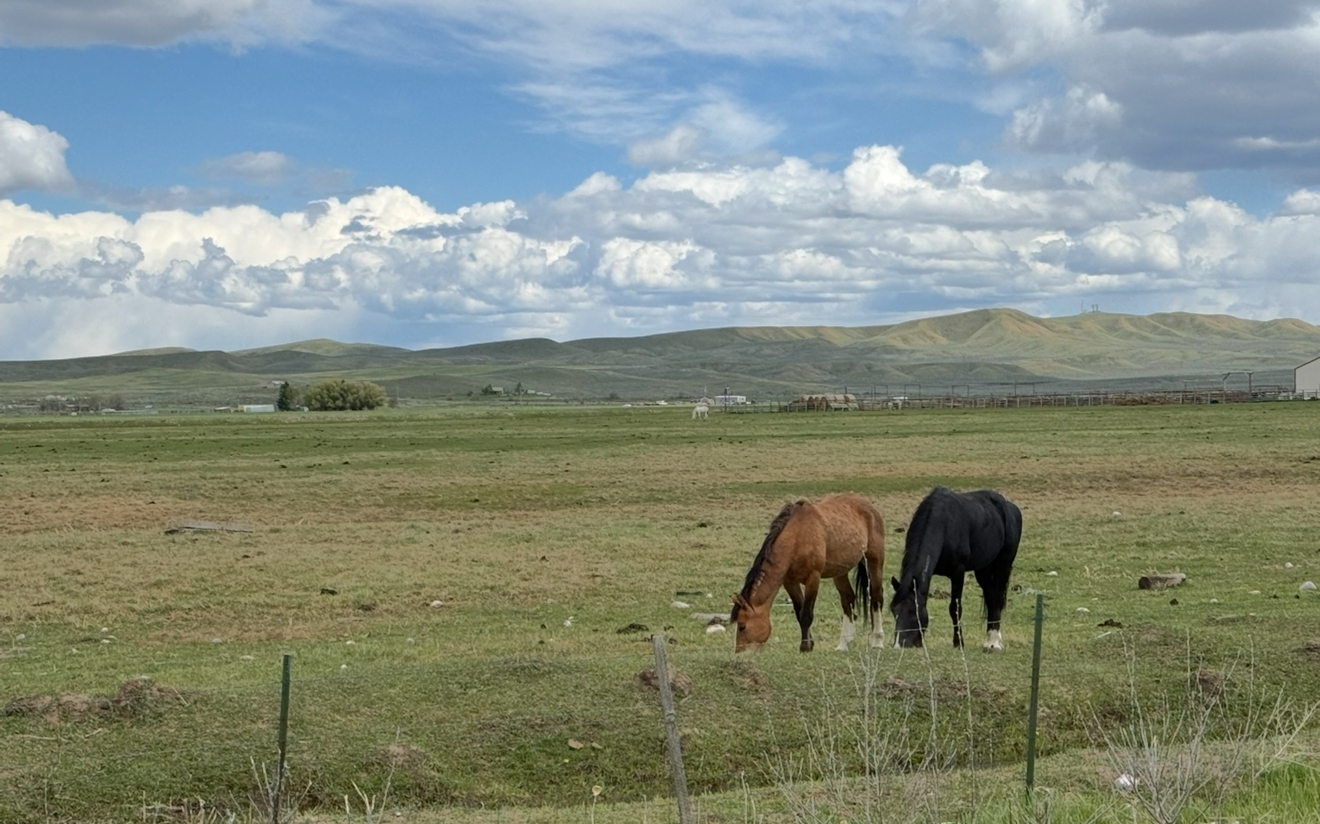
Substance misuse is among struggles clients say they have faced contributing to crimes they were sent to prison for. The tribal reentry program requires sobriety says Smith.
“I’m very loud and proud about my recovery, you know, and I had a really public downfall. So I feel like it’s my responsibility to show people that we can get better.”
And that’s a choice clients like Serena Perea have made.
“I have three children. Their father passed away in 2020 from alcoholism, so I’m pretty much all they have left. I just want to end the generational cycle of trauma. you know, obviously I’ve made some mistakes and I just want to show them that I’ve learned from them so that, you know, in their future, they can take what I have and make something better for their children and generations to come.”
This story is a collaboration with First Nations Experience Television with support from the Public Welfare Foundation
Get National Native News delivered to your inbox daily. Sign up for our daily newsletter today.
